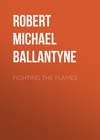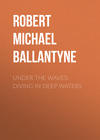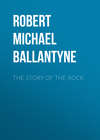Kitabı oku: «Fighting the Flames», sayfa 15
Chapter Twenty Six
What Drink will do
Time passed on, as time is wont to do, and Christmas came again. The snow was deep in London streets and thick on the roofs and chimneys. It curled over the eaves of the houses in heavy white folds ready to fall and smother the unwary passengers. It capped the railings everywhere with little white knobs, and rounded off the corners of things so, that wherever the eye alighted, the same impressions were invariably conveyed to it, namely, whiteness and rotundity. Corinthian capitals were rendered, if possible, more ornate than ever by snow; equestrian statues were laden with it so heavily, that the horses appeared to stagger beneath their trappings and the riders, having white tips to their noses, white lumps on their heads and shoulders, and white patches on their cheek-bones and chins, looked ineffably ridiculous, and miserably cold. Everything, in fact, was covered and blocked up with snow, and Londoners felt as if they had muffled drums in their ears.
It was morning. The sky was clear, the air still, and the smoke of chimneys perpendicular. Poulterers’ shops were in their holiday attire; toy-shops were in the ascendant, and all other shops were gayer than usual. So were the people who thronged the streets and beat their hands and stamped their feet—for it was unusually cold.
Street boys were particularly lively, and chaff was flying as thickly as snow-flakes had fallen the night before. Even the roughs—who forsook their dens, and, with shovels and brooms on their shoulders, paraded the streets, intent on clearing door-steps with or without the leave of inhabitants—seemed to be less gruff than usual, and some of them even went the length of cutting jokes with the cabmen and the boys. Perhaps their spirits were elevated by the proud consciousness of being for once in the way of earning an honest penny!
“I say, Ned,” observed one of these roughs (a lively one), who was very rough indeed, to a companion, who was rougher still and gloomy, “look at that there gal cleanin’ of her steps with a fire-shovel! Ain’t that economy gone mad? Hallo, young ’ooman, what’s the use o’ trying to do it with a teaspoon, when there’s Ned and me ready to do it with our shovels for next to nothin’?”
The servant-girl declined the assistance thus liberally offered, so the two men moved slowly on, looking from side to side as they went, in expectation of employment, while a small boy, in a man’s hat, who walked behind them, nodded to the girl, and said she was a “sensible thrifty gal,” and that she might be sure there was “some feller unknown who would bless the day he was born after he’d got her.”
Fifty yards farther on, a stout, red-faced, elderly gentleman was observed to look out at the street door and frown at things in general.
“Have your door-steps cleaned, sir?” asked the lively rough, taking the shovel off his shoulder.
The elderly gentleman being angry, on private and unknown grounds (perhaps bad digestion), vouchsafed no reply, but looked up at the sky and then over the way.
“Do it cheap, sir,” said the lively rough.
“No!” said the elderly gentleman, with a sort of snapping look, as he turned his gaze up the street and then down it.
“Snow’s wery deep on the steps, sir,” said the rough.
“D’you suppose I’m an ass?” exclaimed the elderly gentleman, in a sudden burst.
“Well, sir,” said the lively rough, in the grave tone and manner of one who has had a difficult question in philosophy put to him, “well, sir, I don’t know about that.”
His large mouth expanded gradually from ear to ear after this reply. The elderly gentleman’s face became scarlet and his nose purple, and retreating two paces, he slammed the door violently in the rough’s face.
“Ah, it all comes of over-feedin’, poor feller,” said the lively man, shouldering his shovel and resuming his walk beside his gloomy comrade, who neither smiled nor frowned at these pleasantries.
“A warm old g’n’l’m’n!” remarked the boy in the man’s hat as he passed.
The lively man nodded and winked.
“Might eat his wittles raw an’ cook ’em inside a’most!” continued the boy; “would advise him to keep out of ’yde Park, though, for fear he’d git too near the powder-magazine!”
At this point the gloomy rough—who did not appear, however, to be a genuine rough, but a pretty good imitation of one, made of material that had once seen better days—stopped, and said to his comrade that he was tired of that sort of work, and would bid him good-day. Without waiting for an answer he walked away, and his companion, without vouchsafing a reply, looked after him with a sneer.
“A rum cove!” he remarked to the small boy in the man’s hat, as he continued his progress.
“Rayther,” replied the boy.
With this interchange of sentiment these casual acquaintances parted, to meet probably no more!
Meanwhile the gloomy rough, whom the lively one had called Ned, walked with rapid steps along several streets, as though he had a distinct purpose in view. He turned at last into a narrow, quiet street, and going up to the door of a shabby-genteel house, applied the knocker with considerable vigour.
“Now then, go along with you; we don’t want your services here; we clear off our own snow, we do. Imprence! to knock, too, as if he was a gentleman!”
This was uttered by a servant-girl who had thrust her head out of a second-floor window to take an observation of the visitor before going down to open the door.
“Is he at home, Betsy dear?” inquired the gloomy man, looking up with a leer which proved that he could be the reverse of gloomy when he chose.
“Oh, it’s you, is it? I don’t think he wants to see you; indeed, I’m sure of it,” said the girl.
“Yes he does, dear; at all events I want to see him; and, Betsy, say it’s pressing business, and not beggin’.”
Betsy disappeared, and soon after, reappearing at the door, admitted the man, whom she ushered into a small apartment, which was redolent of tobacco, and in which sat a young man slippered and dressing-gowned, taking breakfast.
“How are you, doctor?” said the visitor, in a tone that did not accord with his soiled and ragged garments, as he laid down his hat and shovel, and flung himself into a chair.
“None the better for seeing you, Hooper,” replied the doctor sternly.
“Well, well!” exclaimed Ned, “what a world we live in, to be sure! It was ‘Hail fellow! well met,’ when I was well off; now,” (he scowled here) “my old familiars give me the cold shoulder because I’m poor.”
“You know that you are unjust,” said the doctor, leaning back in his chair, and speaking less sternly though not less firmly; “you know, Ned, that I have helped you with advice and with money to the utmost extent of my means, and you know that it was a long, long time before I ceased to call you one of my friends; but I do not choose to be annoyed by a man who has deliberately cast himself to the dogs, whose companions are the lowest wretches in London, and whose appearance is dirty and disgusting as well as disreputable.”
“I can’t help it,” pleaded Hooper; “I can get no work.”
“I don’t wonder at that,” replied the doctor; every friend you ever had has got you work of one kind or another during the last few years, and you have drunk yourself out of it every time. Do you imagine that your friends will continue to care for a man who cares not for himself?
Ned did not reply, but hung his head in moody silence.
“Now,” continued the doctor, “my time is a little more valuable than yours; state what you have got to say, and then be off. Stay,” he added, in a softened tone, “have you breakfasted?”
“No,” answered Ned, with a hungry glance at the table.
“Well, then, as you did not come to beg, you may draw in your chair and go to work.”
Ned at once availed himself of this permission, and his spirits revived wonderfully as he progressed with the meal, during which he stated the cause of his visit.
“The fact is,” said he, “that I want your assistance, doctor—”
“I told you already,” interrupted the other, “that I have assisted you to the utmost extent of my means.”
“My good fellow, not so sharp, pray,” said Ned, helping himself to another roll, the first having vanished like a morning cloud; “I don’t want money—ah: that is to say, I do want money, but I don’t want yours. No; I came here to ask you to help me to get a body.”
“A body. What do you mean?”
“Why, what I say; surely you’ve cut up enough of ’em to know ’em by name; a dead body, doctor,—a subject.”
The doctor smiled.
“That’s a strange request, Ned. You’re not going to turn to my profession as a last resort, I hope?”
“No, not exactly; but a friend of mine wants a body—that’s all, and offers to pay me a good round sum if I get one for him.”
“Is your friend a medical man?” asked the doctor.
“N–no, he’s not. In fact, he has more to do with spirits than bodies; but he wants one of the latter—and I said I’d try to get him one—so, if you can help me, do so, like a good fellow. My friend is particular, however; he wants a man one, above six feet, thin and sallow, and with long black hair.”
“You don’t suppose I keep a stock of assorted subjects on hand, do you?” said the doctor. “I fear it won’t be easy to get what you want. Do you know what your friend intends to do with it?”
“Not I, and I don’t care,” said Ned, pouring out another cup of coffee. “What does a body cost?”
“Between two and three pounds,” replied the doctor.
“Dear me, so cheap,” said Ned, with a look of surprise; “then that knocks on the head a little plan I had. I thought of offering myself for sale at Guy’s or one of the hospitals, and drinking myself to death with the money, leaving my address, so that they might know where to find me; but it’s not worth while to do it for so little; in fact, I don’t believe I could accomplish it on three pounds’ worth of dissipation.”
“Don’t jest about your besetting sin,” said the doctor gravely; “it’s bad enough without that.”
“Bad enough,” exclaimed Ned, with a sudden flash of ferocity; “ay, bad enough in all conscience, and the worst of it is, that it makes me ready to jest about anything—in heaven, earth, or hell. Oh, drink! accursed drink!”
He started up and clutched the hair of his head with both hands for a moment; but the feeling passed away, and he sat down again and resumed breakfast, while he said in a graver tone than he had yet used—
“Excuse me, doctor; I’m subject to these bursts now and then. Well, what say you about the body? My friend offers me twenty pounds, if I get the right kind. That would be seventeen pounds of profit on the transaction. It’s worth an effort. It might put me in the way of making one more stand.”
Ned said this sadly, for he had made so many stands in time past, and failed to retain his position, that hope was at dead low-water of a very neap-tide now.
“I don’t like the look of the thing,” said the doctor. “There’s too much secrecy about it for me. Why don’t your friend speak out like a man; state what he wants it for, and get it in the regular way?”
“It mayn’t be a secret, for all I know,” said Ned Hooper, as he concluded his repast. “I did not take the trouble to ask him; because I didn’t care. You might help me in this, doctor.”
“Well, I’ll put you in the way of getting what you want,” said the doctor, after a few moments reflection; “but you must manage it yourself. I’ll not act personally in such an affair; and let me advise you to make sure that you are not getting into a scrape before you take any steps in the matter. Meanwhile, I must wish you good-day. Call here again to-night, at six.”
The doctor rose as he spoke, and accompanied Ned to the door. He left a coin of some sort in his palm, when he shook hands.
“Thankee,” said Ned.
“If you had come to beg, you should not have got it,” said the doctor. “God help him!” he added as he shut the door; “it is an awful sight to see an old companion fall so low.”
Chapter Twenty Seven
An Old Plot
It is evening now. The snow is still on the ground; but it looks ruddy and warm in the streets, because of the blaze of light from the shop-windows, and it looks colder than it did on the house-tops, by reason of the moon which sails in the wintry sky.
The man in the moon must have been in good spirits that night, for his residence seemed almost fuller than the usual full moon, and decidedly brighter—to many, at least, of the inhabitants of London. It looked particularly bright to Miss Tippet, as she gazed at it through the windows of her upper rooms, and awaited the arrival of “a few friends” to tea. Miss Tippet’s heart was animated with feelings of love to God and man; and she had that day, in obedience to the Divine precept, attempted and accomplished a good many little things, all of which were, either directly or indirectly, calculated to make human beings happy.
Emma Ward, too, thought the moon particularly bright that night; in fact she might almost have been regarded as a lunatic; so steadily did she gaze at the moon, and smile to herself without any apparent motive. There was reason for her joy, however, for she had come to know, in some mysterious way, that Frank Willders loved her; and she had known, for a long time past, that she loved Frank Willders.
Frank had become a foreman of the Fire Brigade, and had been removed from his former station and comrades to his new charge in the city. But Frank had not only risen in his profession; he had also risen intellectually. His mother had secured to him a pretty good education to begin with, and his own natural taste and studious habits had led him to read extensively. His business required him to sit up and watch when other men slept. He seldom went to bed before four o’clock any morning, and when he did take his rest he lay down like the soldier in an enemy’s country, ready to rush to arms at the first sound of the bugle. His bugle, by the way, was a speaking-trumpet, one end of which was close to the head of his bed, the other end being in the lobby where the men on duty for the night reposed.
During these long watches in the silent lobby, with the two men belted and booted on their tressels, the clock ticking gently by his side, like the soft quiet voice of a chatty but not tiresome friend, Frank read book after book with absorbing interest. History, poetry, travel, romance—all kinds were equally devoured. At the particular time of which we write, however, he read more of poetry than of anything else.
The consequence was that Frank, who was one of nature’s gentlemen, became a well-informed man, and might have moved in any circle of society with credit to himself, and profit as well as pleasure to others.
Frank was by nature grave, sedate, earnest, thoughtful. Emma was equally earnest—more so perhaps—but she was light-hearted (not light headed, observe) and volatile. The result was mutual attraction. Let philosophers account for the mutual attraction of these qualities as they best may, we simply record the fact. History records it; nature records it; experience—everything records it; who has the temerity, or folly, to deny it?
Emma and Frank felt it, and, in some mysterious way, Frank had come to know something or other about Emma’s feelings, which it is not our business to inquire into too particularly.
So, then, Frank also gazed—no, not at the moon; it would have required him to ascend three flights of stairs, and a ladder, besides passing through a trap to the roof of the station, to enable him to do that; but there was a lamp over the fireplace, with a tin reflector, which had quite a dazzling effect of its own—not a bad imitation of the moon in a small way—so he gazed at that, and thought it very bright indeed; brighter than usual.
We may as well put the reader out of suspense at once by saying that we do not intend to describe Miss Tippet’s evening with “a few friends.” Our own private opinion in regard to the matter is, that if they had been fewer than they were, and more worthy of the name of friends, the evening might have been worth recording, but it is sufficient to say that they all came; acted as usual, spoke as usual, felt as usual, “favoured the company” with songs, as usual, and—ah—yes—enjoyed themselves as usual till about half-past eleven o’clock, when they all took their leave, with the exception of Miss Deemas, who, in consideration of the coldness of the weather, had agreed to spend the night with her “dear friend.”
Miss Deemas was one of those unfortunates with whom it is impossible for any one to sleep. Besides being angular and hard, she had a habit of kicking in her slumbers, and, being powerful, was a dangerous bedfellow. She knew this herself, and therefore wisely preferred, when visiting her friends, to sleep alone. Hence it happened that Miss Tippet and Emma went to bed in the back room with the green hangings, while Miss Deemas retired to the front room with the blue paper.
There is a common fallacy in naval matters founded on poetical license, to the effect that the mariner is separated from death by a single plank; whereas, the unpoetical truth is, that the separation consists of many hundreds of planks, and a solid bulwark of timbers more than a foot thick, besides an inner “skin,” the whole being held together by innumerable iron and oaken bolts and trenails, and tightened with oakum and pitch. We had almost fallen into this error—or poetical laxity of expression—by saying that, on the night of which we write, little did Miss Tippet know that she was separated from, not death exactly, but from something very awful, by a single plank; at least, by the floor of her own residence, and the ceiling of the house below—as the sequel will show.
That same night, David Boone, gaunt, tall, and cadaverous as of old, sat in his back parlour, talking with his friend Gorman.
“Now, Boone,” said the latter, with an oath, “I’m not goin’ to hang off and on any longer. It’s more than seven years since we planned this business, the insurances have been effected, you’ve bin a prosperous man, yet here you are, deeper in my debt than ever.”
“Quite true,” replied Boone, whose face was so pale that he might have easily been mistaken for a ghost, “but you know I have paid up my premiums quite regular, and your interest too, besides clearin’ off some of the principal. Come, don’t be hard on me, Gorman. If it had not been that trade has got worse of late, I would have cleared off all I owe you, but indeed, indeed I have not been so successful of late, and I’m again in difficulties. If you will only wait—”
“No,” cried Gorman, “I’ll not wait. I have waited long enough. How long would you have me wait—eh? Moreover, I’m not hard on you. I show you an easy way to make a good thing of it, and you’re so chicken-hearted that you’re afraid to do it.”
“It’s such a mean thing to do,” said Boone.
“Mean! Why, what do you call the style of carrying on business that you started with seven years ago, and have practised more or less ever since?”
“That is mean, too,” said Boone; “I’m ashamed of it; sorry for it. It was for a time successful no doubt, and I have actually paid off all my creditors except yourself, but I don’t think it the less mean on that account, and I’m thoroughly ashamed of it.”
There was a good deal of firmness in Boone’s tone as he said this, and his companion was silent for a few minutes.
“I have arranged,” he said at last, “about your making over your policies of insurance to me as security for the debt you owe me. You won’t have to pay them next half-year, I’ll do that for you if necessary.” He laughed as he said this. “I have now come to ask you to set the house alight, and have the plan carried out, and the whole affair comfortably settled.”
Gorman said this in an encouraging voice, assuming that his dupe was ready to act.
“B–but it’s awful to think of,” said Boone; “suppose it’s found out?”
“How can it be found out?”
“Well, I don’t know. It’s wonderful how crime is discovered,” said Boone despondingly; “besides, think of the risk we run of burning the people who live above, as well as my two clerks who sleep in the room below us; that would be murder, you know. I’m sure I have tried my very best to get Miss Tippet to go from home for a short time, I’ve almost let the cat out of the bag in my anxiety, but she won’t take the hint.”
“Oho!” exclaimed Gorman, with a laugh.
“Well, have you made the arrangements as I directed you last night?”
“Yes, I’ve got a lot of tarry oakum scattered about, and there is a pile of shavings,” he added, pointing to a corner of the room; “the only thing I’m anxious about is that my young man Robert Roddy caught me pouring turpentine on the walls and floor of the shop. I pretended that it was water I had in the can, and that I was sprinkling it to lay the dust before sweeping up. Roddy is a slow, stupid youth; he always was, and, I daresay, did not notice the smell.”
Gorman was himself filled with anxiety on hearing the first part of this, but at the conclusion he appeared relieved.
“It’s lucky you turned it off so,” said he, “and Roddy is a stupid fellow. I daresay he has no suspicion. In fact, I am sure of it.”
“It’s not of much importance now, however,” said Boone, rising and confronting his friend with more firmness than he had ever before exhibited to him, “because I have resolved not to do it.”
Gorman lit his pipe at the fire, looking at the bowl of it with a scornful smile as he replied—
“Oh! you have made up your mind, have you?”
“Yes, decidedly. Nothing will move me. You may do your worst.”
“Very good,” remarked Gorman, advancing with the lighted paper towards the heap of shavings.
Boone sprang towards him, and, seizing his arms, grasped the light and crushed it out.
“What would you do, madman?” he cried. “You can only ruin me, but do you not know that I will have the power to denounce you as a fire-raiser?”
Gorman laughed, and returned to the fireplace, while Boone sat down on a chair almost overcome with terror.
“What! you dare to defy me?” said Gorman, with an air of assumed pity. “A pretty case you would have to make out of it. You fill your shop with combustibles, you warn your tenant upstairs to get out of the premises for a time in a way that must be quite unaccountable to her (until the fire accounts for it), and your own clerk sees you spilling turpentine about the place the day before the fire occurs, and yet you have the stupidity to suppose that people will believe you when you denounce me!”
Poor David Boone’s wits seemed to be sharpened by his despair, for he said suddenly, after a short pause—
“If the case is so bad it will tell against yourself, Gorman, for I shall be certainly convicted, and the insurance will not be paid to you.”
“Ay, but the case is not so bad as it looks,” said Gorman, “if you only have the sense to hold your tongue and do what you are told; for nobody knows all these things but you and me, and nobody can put them together except ourselves—d’ye see?”
“It matters not,” said Boone firmly; “I won’t do it—there!”
Both men leaped up. At the same moment there was a sound as of something falling in the shop. They looked at each other.
“Go see what it is,” said Gorman.
The other stepped to the door.
“It’s only two of my wax-dolls tumbled off the shelf,” he said on returning.
An exclamation of horror escaped him, for he saw that the heap of shavings had been set on fire during his momentary absence, and Gorman stood watching them with a demoniacal grin.
Boone was struck dumb. He could not move or speak. He made a feeble effort to stretch out his hands as if to extinguish the fire, but Gorman seized him in his powerful grasp and held him fast. In a few seconds the flames were leaping up the walls, and the room was so full of smoke that they were driven into the front shop.
“Now, then,” said Gorman in a fierce whisper, “your only chance is to act out your part as wisely as you can. Shout fire! now till you’re black in the face—fire! Fire!! Fire!!!”
David Boone obeyed with all his might, and, when Gorman released him, ran back into the parlour to try to extinguish the flames, but he was driven back again, scorched and half-choked, while Gorman ran off at full speed to the nearest station, gave the alarm, received the shilling reward for being first to give the call, and then went leisurely home to bed.










